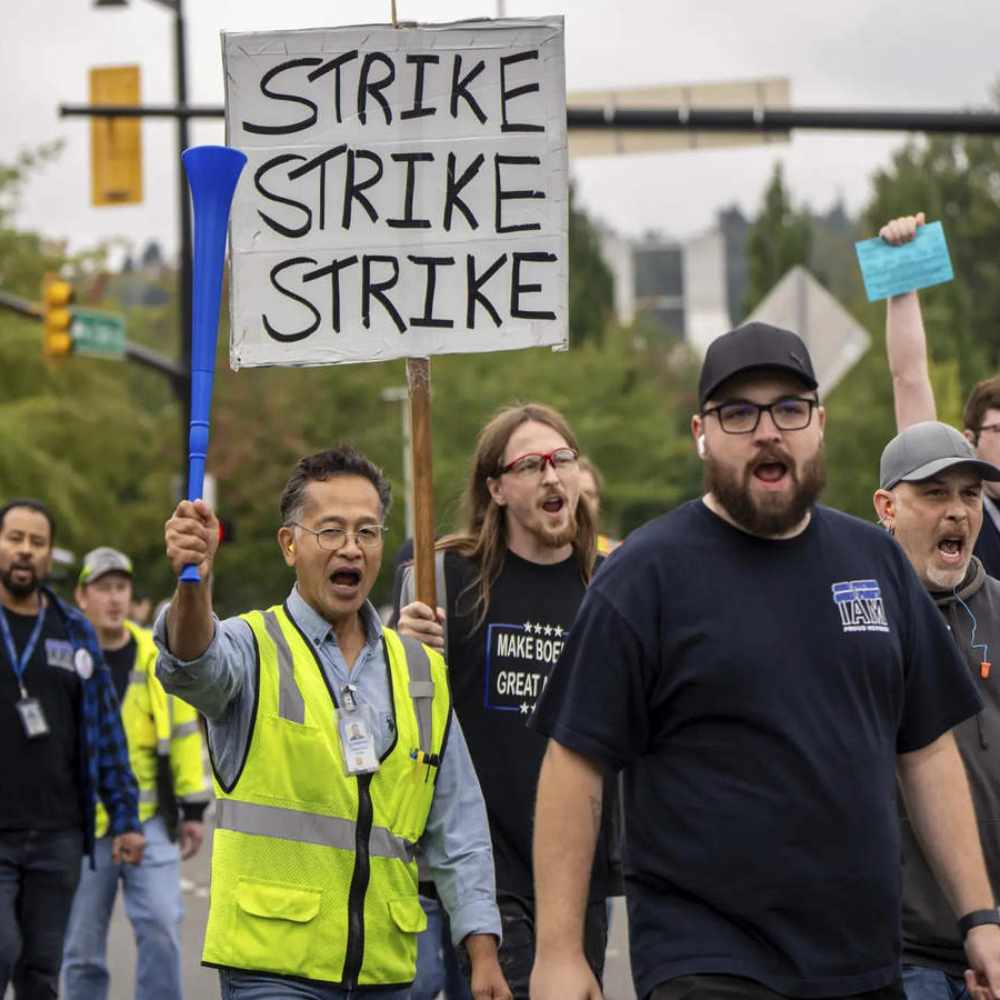[Sourc e-economictimes.indiatimes.com]
SEATTLE (AP) — Machinists Vote to Strike after overwhelmingly rejecting Boeing’s proposed pay increase, adding to the aircraft manufacturer’s ongoing challenges with production issues and financial difficulties.
The International Association of Machinists and Aerospace Workers (IAM) announced that its members voted against a contract offering a 25% pay increase over four years. The vote saw 94.6% of the members rejecting the contract and 96% voting in favor of striking. A two-thirds majority among the 33,000 workers was required to authorize a strike.
IAM District 751 President Jon Holden emphasized that issues of respect, past grievances, and future concerns drove the strike vote. He stated that the decision was about ensuring fair treatment and securing a better future for the workers.
Challenges Facing Boeing Machinists Vote to Strike
This year has been particularly difficult for Boeing, with a series of setbacks affecting the company’s reputation and operations. In January, a panel blew out of one of its passenger jets, leaving a significant hole in the aircraft. Additionally, NASA faced issues with Boeing’s spacecraft, leading to two astronauts being stranded in space instead of returning home.
The strike is likely to have severe financial implications for Boeing, as it will disrupt the delivery of new planes, a crucial source of revenue for the company. This presents a major obstacle for new CEO Kelly Ortberg, who has been tasked with reviving the company after it lost over $25 billion in the past six years and fell behind its European competitor, Airbus.
Ortberg’s Last-Ditch Effort
Ortberg warned that the Machinists Vote to Strike would jeopardize Boeing’s recovery and further harm its reputation with airline customers. In a final attempt to prevent the strike, Ortberg addressed the machinists, acknowledging the company’s difficult period but stressing that a walkout would undermine efforts to stabilize the business and restore trust with customers.
Workers’ Response
Despite Ortberg’s appeal, workers were resolute in their stance. Union members expressed their dissatisfaction with the proposed deal on social media throughout the week. On Thursday, dozens of workers demonstrated outside a union hall near Boeing’s 737 Max plant in Renton, Washington, carrying signs and making noise to show their support for the strike.
Quality assurance worker Chase Sparkman highlighted the unity among the workers, stating that they were standing together to demand better conditions and compensation. The current average salary for machinists is $75,608 per year, which would increase to $106,350 by the end of the proposed contract. However, this was below the union’s initial demand for a 40% raise over three years and did not meet the call to restore traditional pensions.
Negotiation and Future Impact
Although the bargaining committee that negotiated the contract recommended ratification, many workers felt that the offer fell short. Boeing worker Adam Vogel criticized the proposed raise as inadequate, citing a lack of significant wage increases over the past 16 years. Similarly, Broderick Conway, a long-term Boeing employee, expressed disappointment with the offer and indicated that workers would continue striking if necessary.
Stephanie Pope, head of Boeing’s commercial airplanes division, attempted to discourage workers from striking, asserting that the company had bargained in good faith and did not anticipate a second vote resulting in a better offer.
Potential Economic Consequences
Boeing machinists rally against new contract, threaten strike if terms not met
The Machinists Vote to Strike would halt production of key models such as the 737 Max, the 777, and the 767 cargo plane at Boeing’s facilities in Everett and Renton, Washington. The Boeing 787 Dreamliners, produced by nonunion workers in South Carolina, would not be affected. According to TD Cowen aerospace analyst Cai von Rumohr, the strike could last until mid-November and potentially cost Boeing up to $3.5 billion in cash flow due to disrupted deliveries.
Union negotiators had previously recommended the tentative contract, which included promises to build a new plane in the Puget Sound area. This commitment was seen as a key victory for the union, aiming to avoid past issues of production shifts to nonunion locations.
Despite these efforts, many union members remain discontented with past concessions and ongoing issues related to pensions, health care, and pay. The resolution of the current dispute remains uncertain as the strike progresses.







